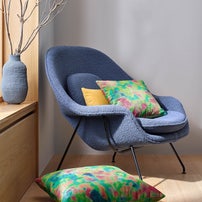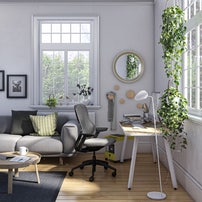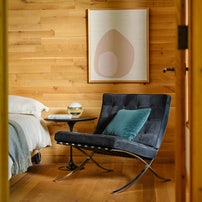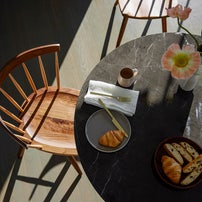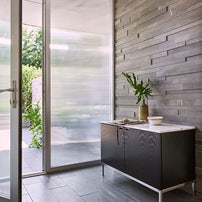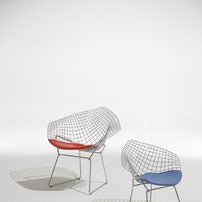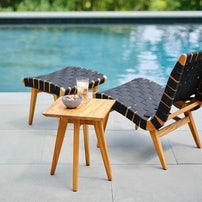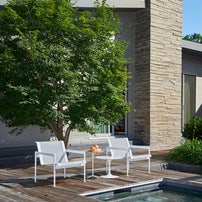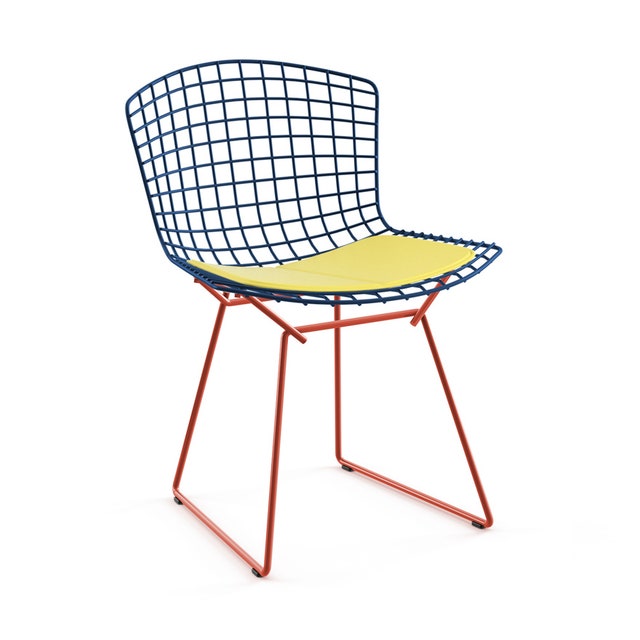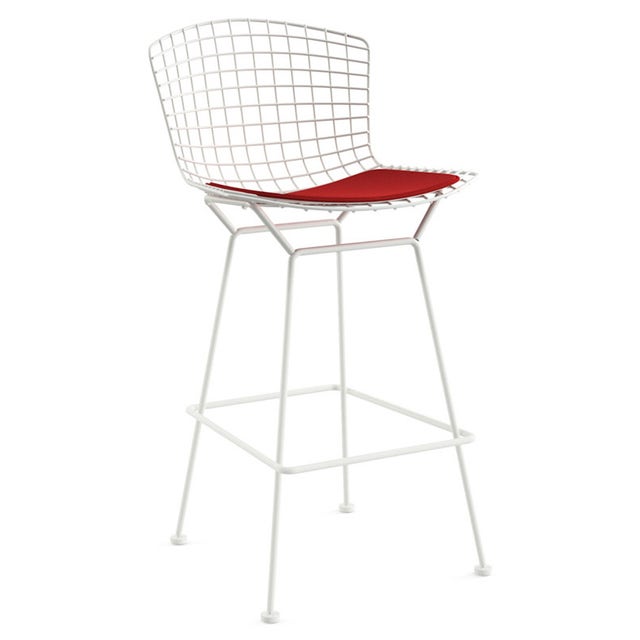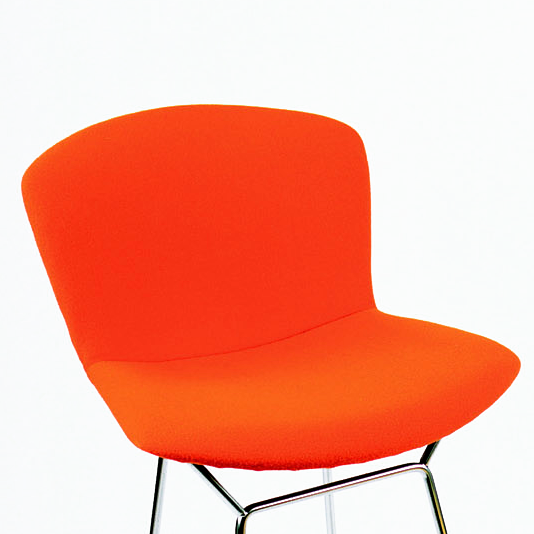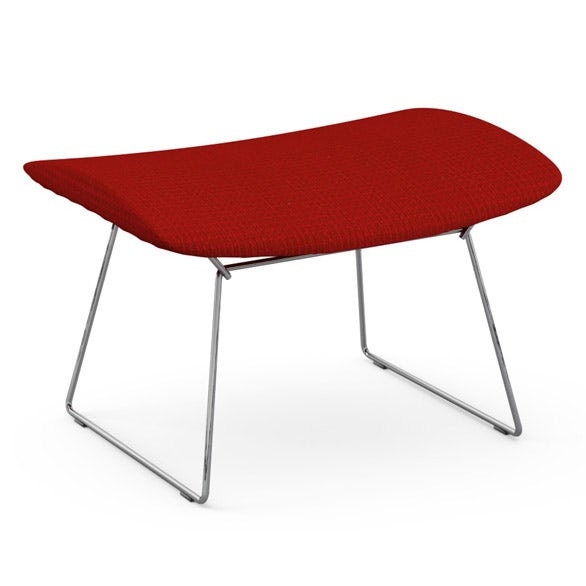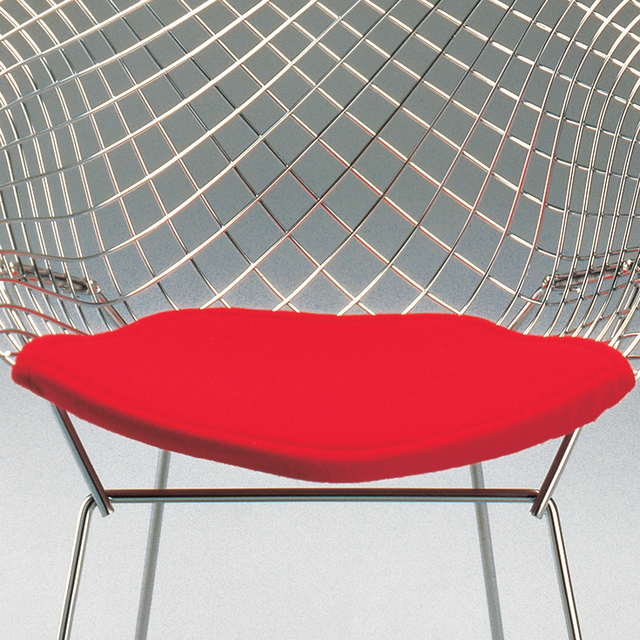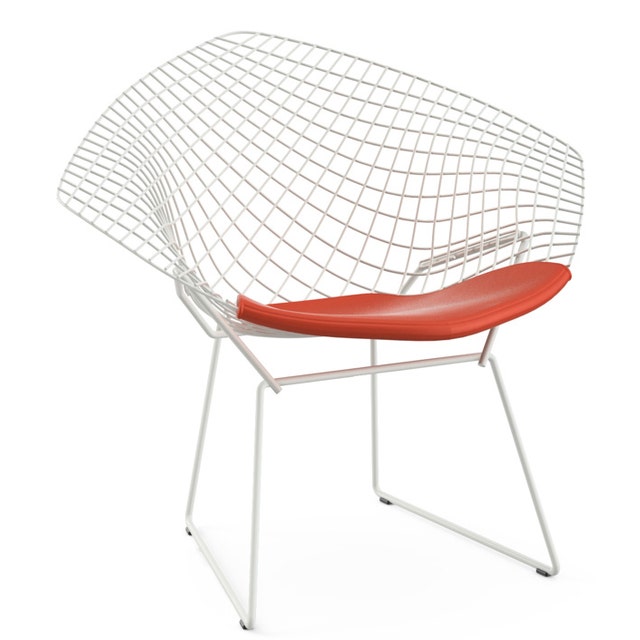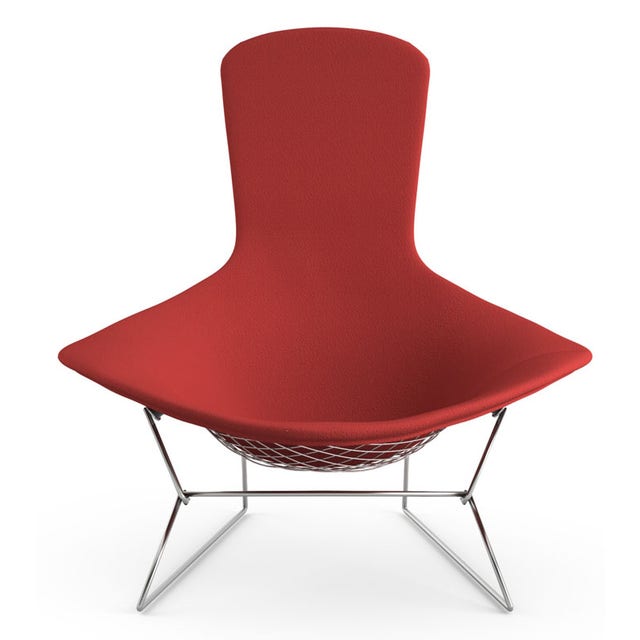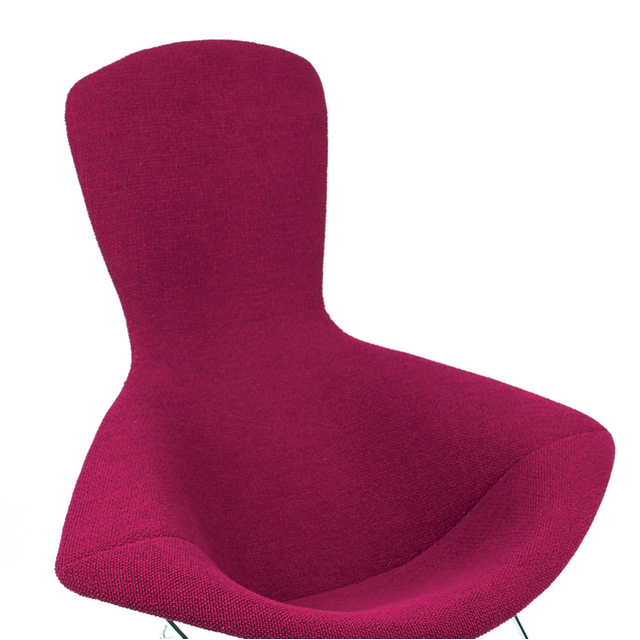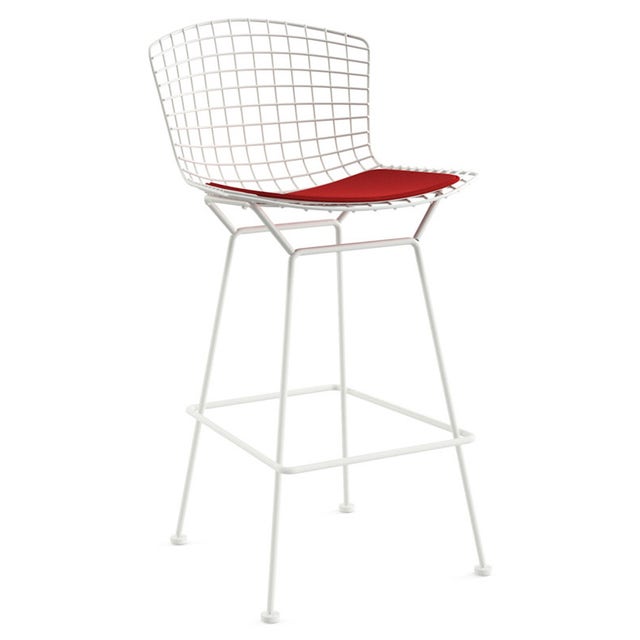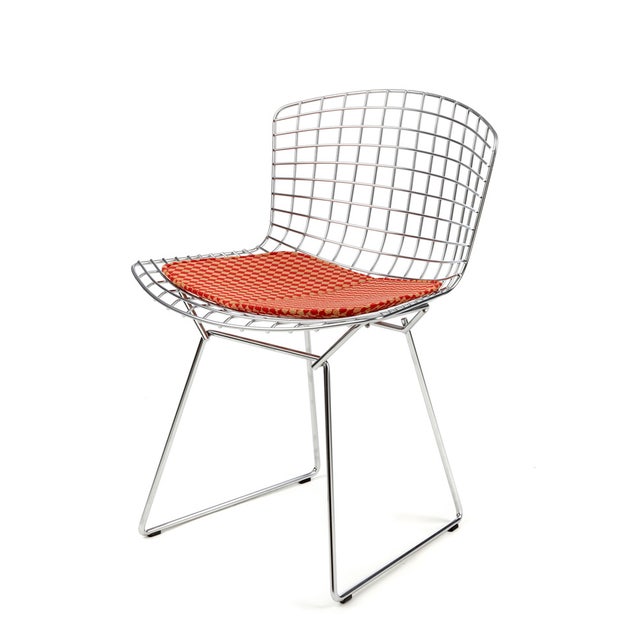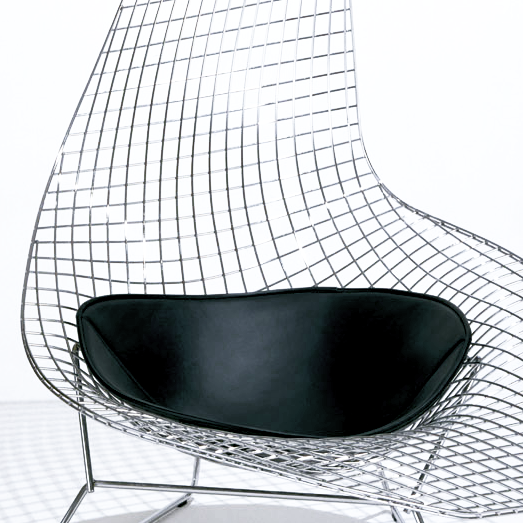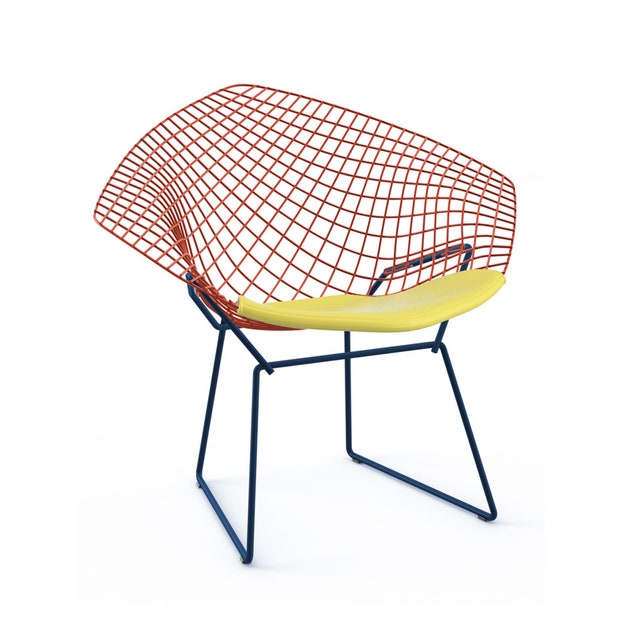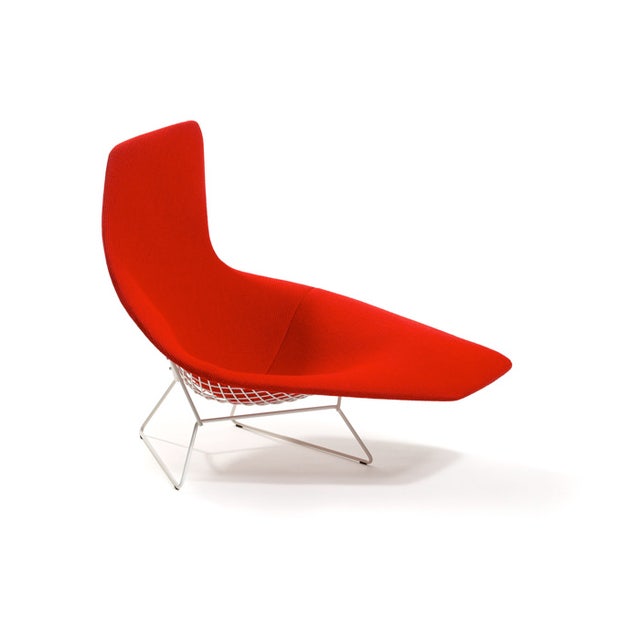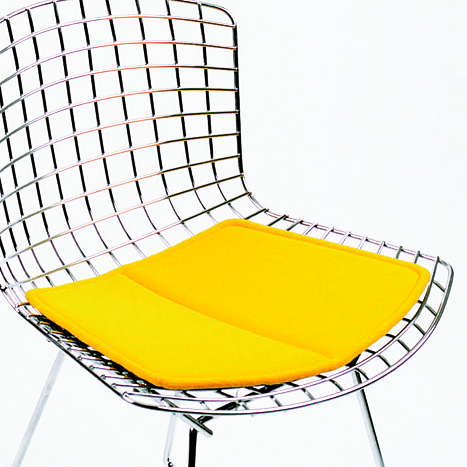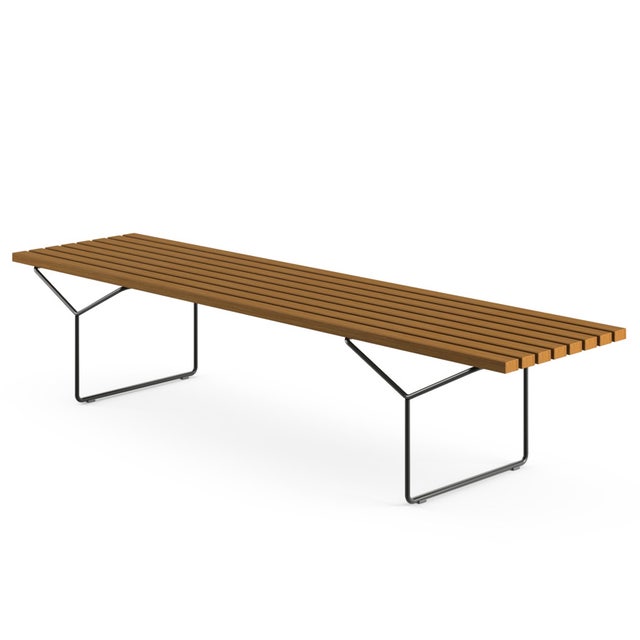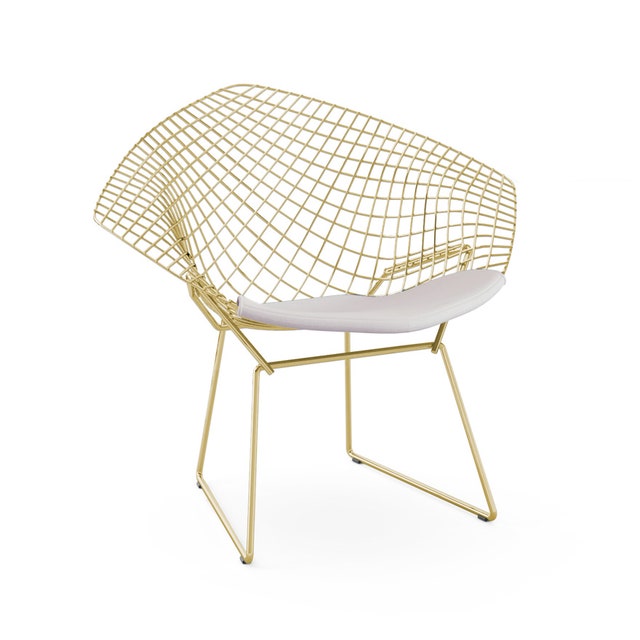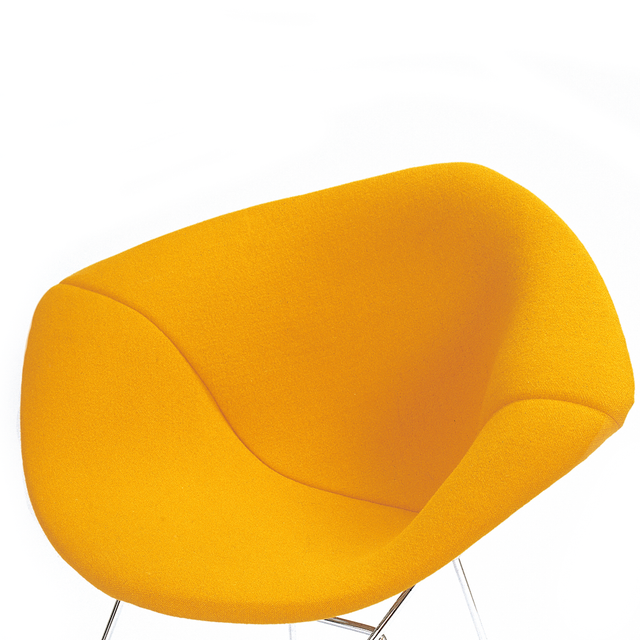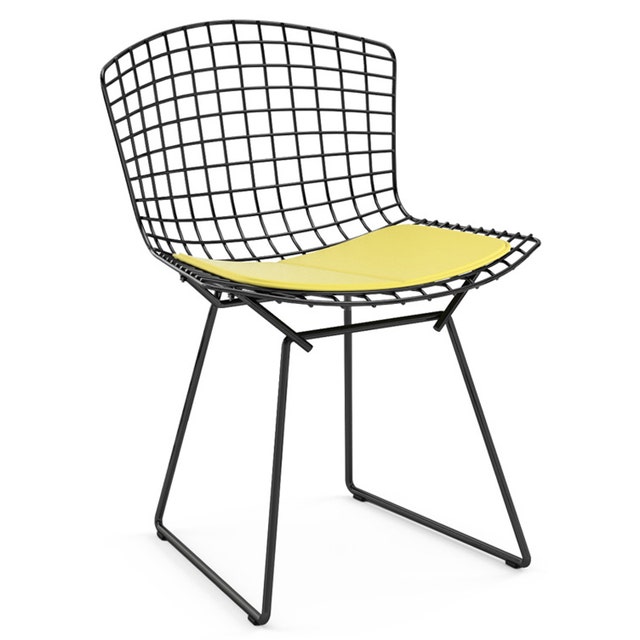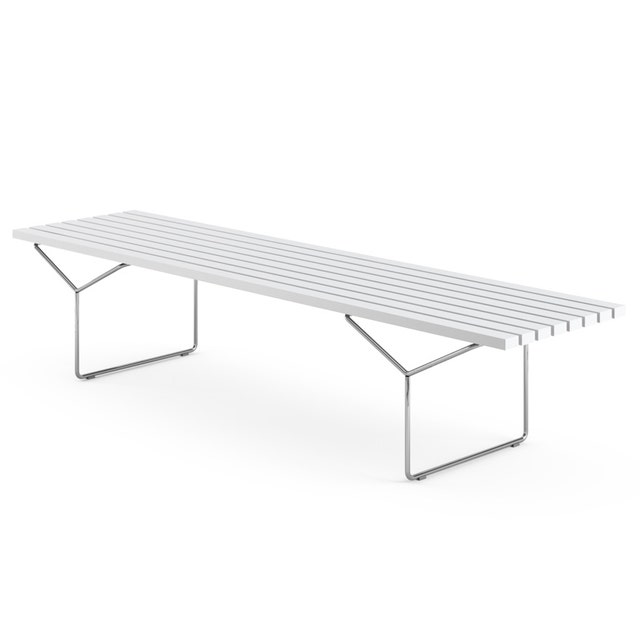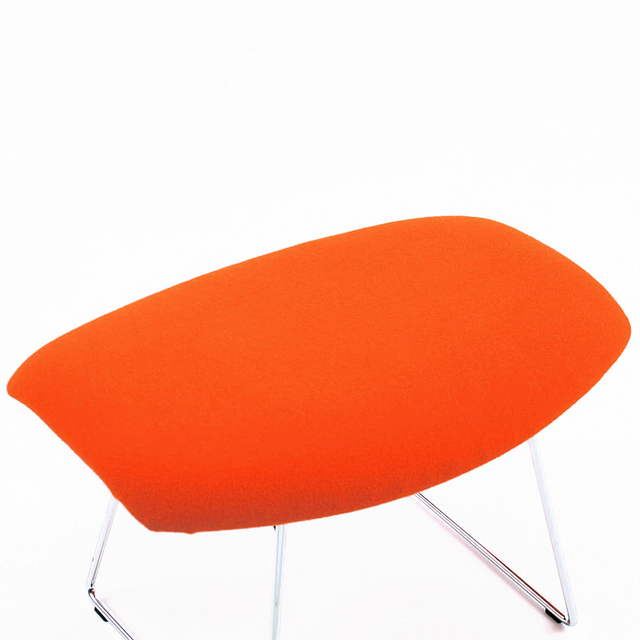Knoll Harry Bertoia Asymmetric Chaise, Outdoor
In Harry Bertoia’s original presentation of his wire chairs to Hans and Florence Knoll in 1950, he showed a chaise longue version, essentially the large diamond chair extended on two of its sides, hence the use of the term asymmetric in reference to its shape. At that time the complexity of production of all of Bertoia’s chairs was still years from being resolved by Knoll Design and Development, and as a result the decision was taken to not develop the chaise.
Two prototypes were made. In 2003 one of them was sold by Bertoia’s family and at that point Knoll obtained access to the chaise in order to use it as a model for reproduction. The original chaise was intended to be covered with a full-length upholstered pad, designed by Richard Schultz. The final production version has an optional seat pad as well as the original full cover option.
The Asymmetric Lounge is the most sculptural of Harry Bertoia’s 1952 wire chair collection. The chair never made it beyond a prototype until 2005, when Knoll, with help from Bertoia’s family, put the design into full production. Harry Bertoia’s wire collection is among the most recognized achievements of mid-century modern design and a proud part of the Knoll heritage.
MEASUREMENTS:
- Height: 102 cm / 40.2 inch
- Width: 132 cm / 52 inch
- Depth: 97.8 cm / 38.5 inch
MATERIALS:
- Seat and base are constructed of welded steel rods with polished chrome finish
HELPFUL NOTES:
- Many Knoll textiles available to choose from
- Plastic glides included on sled base to protect floors
- Cover attaches directly to the frame with hidden mono-filament and metal hooks
- Greenguard Indoor Air Quality Certified®

Harry Bertoia
Italy, 1915 - 1978
Harry Bertoia was born in Udine, Italy, in 1915. When he was fifteen he moved with his family to Canada and then on to Michigan. In 1939 he was awarded a scholarship to the Cranbrook Academy of Art in Michigan, which had been founded by Eliel Saarinen in 1932. He began to teach there, establishing a workshop for metalwork. At Cranbrook, Harry Bertoia met Charles Eames and in 1943 Bertoia went to California, where he worked briefly with Charles and Ray Eames for the Evans Product Company, designing furniture made of bent laminated wood.
In the 1940s Harry Bertoia concentrated entirely on furniture making and in 1950 he founded a business of his own in Bally, Pennsylvania. 1950 also was the beginning of Harry Bertoia’s collaboration with Florence and Hans Knoll, whose acquaintance he had also made at Cranbrook Academy. Harry Bertoia’s first chair design for Knoll, the Model 420 Diamond, 1950-1952, featuring molded mesh of chromium-plated steel wire, was an immediate best seller.
While he only designed one series of furniture, Bertoia continued to be involved in the Knoll story by providing sculptures and architectural installations for projects. He designed an altar for the MIT Chapel, designed by Eero Saarinen. Bertoia spent the next 25 years of his life experimenting with light, sound and volume through sculptures, paintings and architectural installations.
Today Knoll carries on Harry Bertoia’s legacy of innovation, inspiration, and beauty with the Bertoia collection, which has been in continuous production around the world since its introduction. In 2005 Knoll introduced the Asymmetric Lounge, a design from Bertoia’s initial experimentation that had never reached production.

Knoll has lived their guiding principle, "good design is good business," since 1938. Products are all created to inspire, fit, and last. The Bauhaus philosophy that furniture should complement, not compete with architecture, is central to Knoll’s design. Its extensive portfolio includes office work systems, residential mid-century modern classics, textiles, and accessories.
Designers like Harry Bertoia, Eero Saarinen, Warren Platner, Isamu Noguchi, and Florence Knoll contributed to Knoll’s iconic designs. Knoll invests in research and field studies and explores organizational behavior and technology to ensure quality excellence. As a leader in sustainability, Knoll’s practices reduce waste and conserve resources. Based in Pennsylvania, Knoll has a strong international presence, and 40 products are in the permanent collection of the Museum of Modern Art in New York.
Knoll products incur a 7.5% shipping charge at checkout, with a minimum of $85 and maximum of $500. This fee reflects White Glove Delivery for large items, which includes bringing the item to your room of choice, unpacking, removal of packaging, and assembly.
For further information on our shipping policies click here.
For further information on returns + refunds click here.


